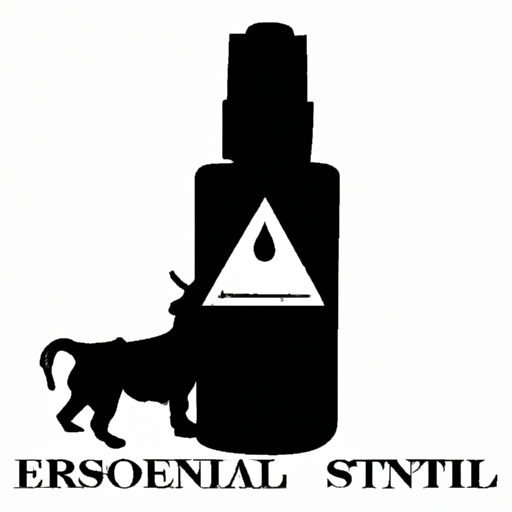As a dedicated caregiver, you want the best for your furry friend. But did you realize that some essential oils can be harmful to your pet? Let’s explore this in detail.
The Risk of Essential Oils to Dogs
Canines have a stronger sense of smell, making them more sensitive to essential oils than humans. While some oils have therapeutic benefits, others can cause harm. Here are some of the adverse effects:
- Skin Irritation: Common signs include redness, itching, and swelling.
- Respiratory Problems: High concentration can lead to breathing difficulties.
- Gastrointestinal Issues: Ingestion can cause vomiting, diarrhoea, and loss of appetite.
Remember, the severity of these symptoms can vary depending on the oil type, concentration, and your dog’s overall health.
List of Potentially Harmful Essential Oils
It’s crucial to know which essential oils are potentially dangerous to your dogs. Here’s a list:
- Cinnamon
- Citrus
- Pennyroyal
- Peppermint
- Pine
- Sweet Birch
- Tea Tree (Melaleuca)
- Wintergreen
- Ylang Ylang
Using Essential Oils Safely Around Dogs
You don’t have to eliminate essential oils from your home entirely. It’s all about using them responsibly.
- Always Dilute: Essential oils should never be used at full strength on dogs.
- Use Diffusers Sparingly: Diffuse oils for short periods and in a well-ventilated area.
- Avoid Certain Areas: Avoid applying oils near your dog’s eyes, nose, and genital area.
- Monitor Your Dog: Watch for any signs of irritation or discomfort.
Essential Oils to Use with Caution
Some essential oils, while not toxic, should be used with caution around dogs. Below is a table listing these oils:
| Essential Oil | Reason to Use with Caution |
|---|---|
| Chamomile | Can cause allergic reactions |
| Frankincense | Can be harmful in large amounts |
| Lavender | Some dogs may have an allergic reaction |
Essential Oils Beneficial for Dogs
Despite the risks, some essential oils can be beneficial to dogs when used correctly. For example, Lavender can be calming, while Frankincense may support the immune system. Always consult with a vet before using these oils.
Frequently Asked Questions
Q: Can I use a diffuser around my dog?
A: Yes, but make sure the room is well-ventilated and monitor your dog for any adverse reactions.
Q: Can I apply diluted essential oils directly to my dog’s skin?
A: It’s best to consult with a vet before doing so.
Q: What should I do if my dog ingests an essential oil?
A: Contact your vet immediately, especially if your dog seems unwell.
Remember, knowledge is power. By knowing which essential oils are harmful to dogs, you’re taking a crucial step in ensuring their safety and well-being.



